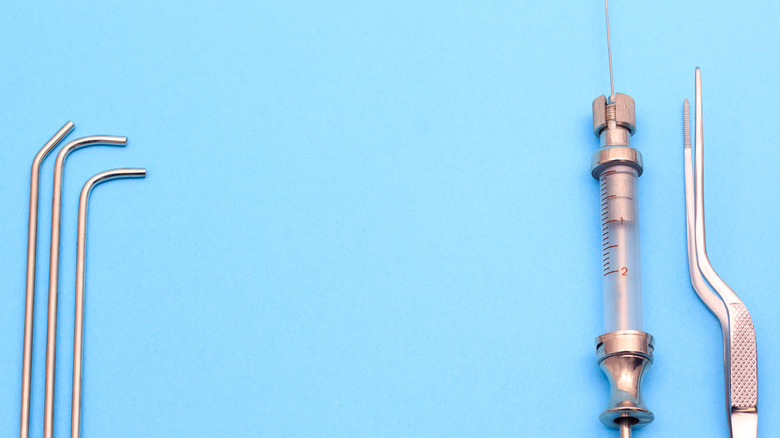The Real Reason Some People Need Their Tonsils Removed
Your tonsils are the two lymph nodes at the back of your throat that help fight off germs and bacteria that enter through your nose and mouth (via Healthline). While some people will never give their tonsils a second thought, others may contract tonsillitis and have to get them surgically removed. Depending on how chronic or severe it is, tonsillitis can make it difficult to breathe and swallow.
Tonsillitis is an inflammation of the tonsils caused by a viral or bacterial infection. Common symptoms include fever, sore throat, swollen tonsils, trouble swallowing, white or yellow coating on the tonsils, enlarged glands in the neck, and difficulty breathing. While many cases of tonsillitis often resolve on their own, some people will need antibiotics or a tonsillectomy. Both tonsillitis and tonsillectomies are more common in children, but it is possible for people of any age to get tonsillitis and require further treatment.
How to know if you need a tonsillectomy
A tonsillectomy is the surgical removal of your tonsils. You might need a tonsillectomy if your tonsillitis doesn't respond to antibiotics, or if you develop chronic or recurrent tonsillitis (via Mayo Clinic). Tonsillitis is considered recurrent if you have at least seven bouts of tonsillitis in one year, or five episodes over the course of two years. Enlarged tonsils can obstruct your airway and make it difficult to breathe, especially when you're asleep. That's why it's important to check in with your doctor to discuss treatment options.
A tonsillectomy is a fairly simple, outpatient procedure performed under general anesthesia. The surgeon will either use a scalpel, heat-based surgical tool, or ultrasonic vibration to cut out and remove your tonsils (via Healthline). After the surgery, you may experience some pain and discomfort in your throat, jaw, ears, and neck for up to two weeks. You can soothe your throat by drinking plenty of liquids and eating foods that are easy to swallow, like applesauce, broth, pudding, and ice cream. You can also take any over-the-counter medications approved by your doctor to help ease the pain.


